
Regular Verb List
Regular verbs are verbs that follow a set pattern when forming the past tense and past participle. To form the past tense, regular verbs simply add "-ed" to the base form of the verb. To form the past participle, regular verbs also add "-ed" to the base form of the verb.

Regular Verbs A Big List of Regular Verbs in English ESL Grammar
regular model: work verbs ending in -e: like. take - model verbⓘ The preterit is formed by changing -ake to -ook, while the past participle adds -n to the infinitive. Verbs that follow this model: betake forsake mistake overtake partake
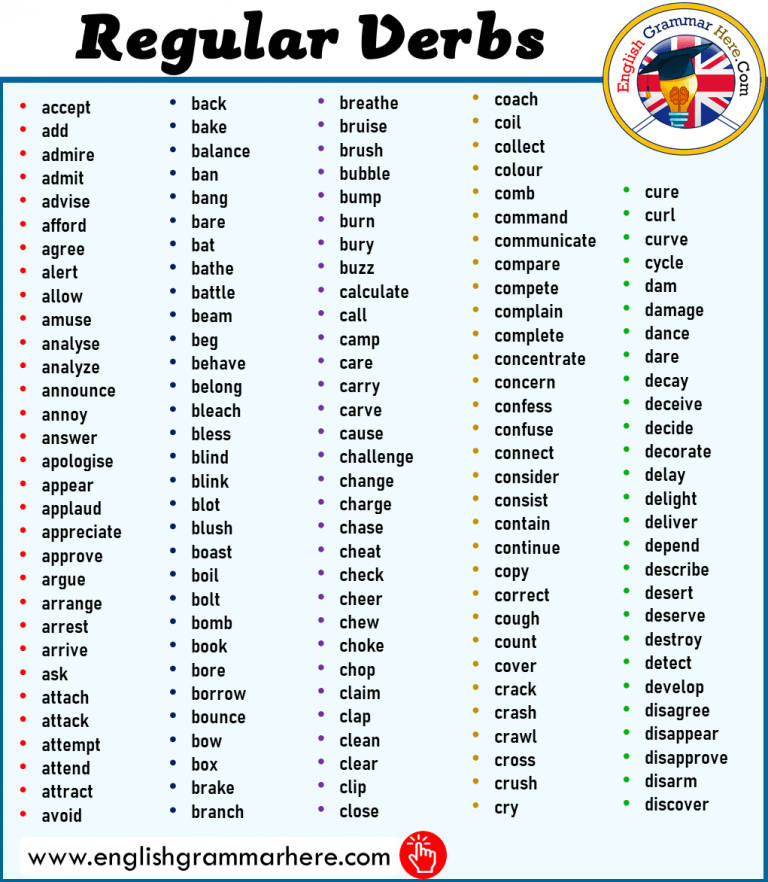
500 regular verbs Archives English Grammar Here
Modelo : take Auxiliar : have, be Otras formas: not take Contracciones Publicidad Indicative Present I take you take he/she/it takes we take you take they take Preterite I took you took he/she/it took we took you took they took Present continuous I am taking you are taking he/she/it is taking we are taking you are taking
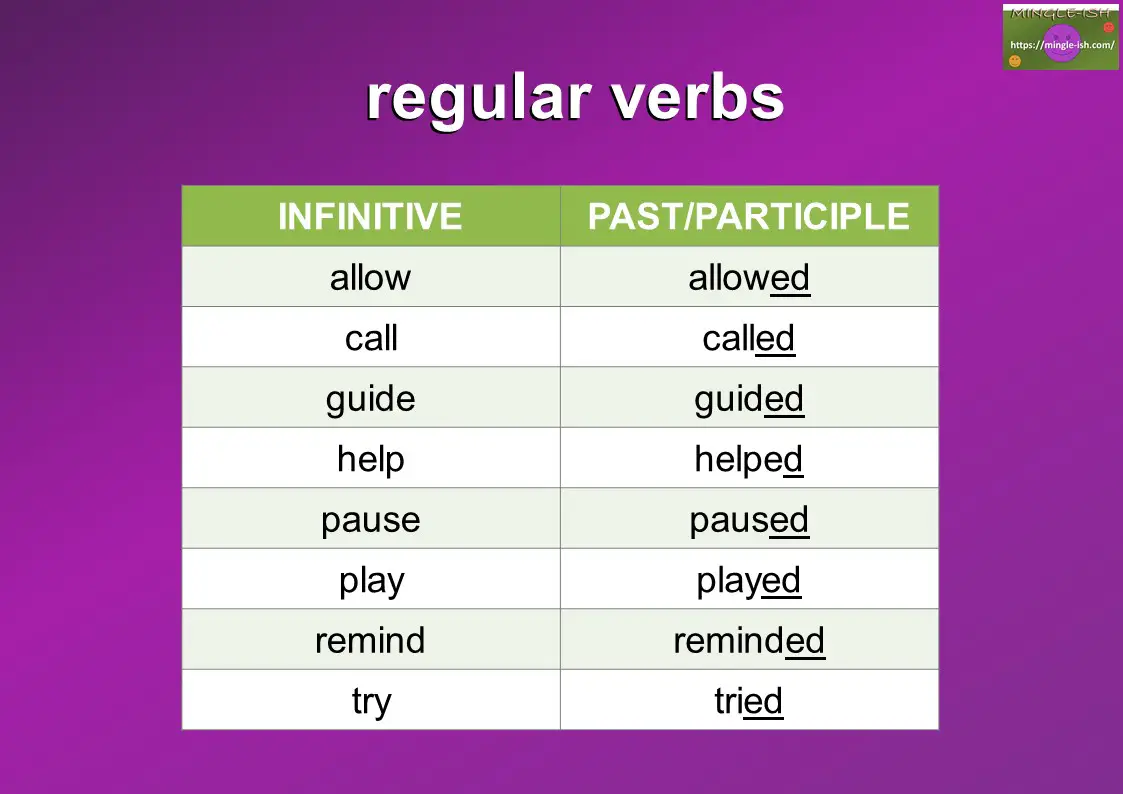
Regular Verbs Mingleish
English Top Regular English Verbs This is a list of the most common regular verbs in English. Regular verbs in English are very easy to conjugate and easy to learn. Many of the most used verbs are irregular however - see the list of irregular English verbs to learn these. Irregular forms are in red. 1 2 3 4

50 Most Commonly Used Regular Verbs in Past English Study Here
85 meanings: 1. to gain possession of (something) by force or effort 2. to appropriate or steal 3. to receive or accept into a.. Click for more definitions.
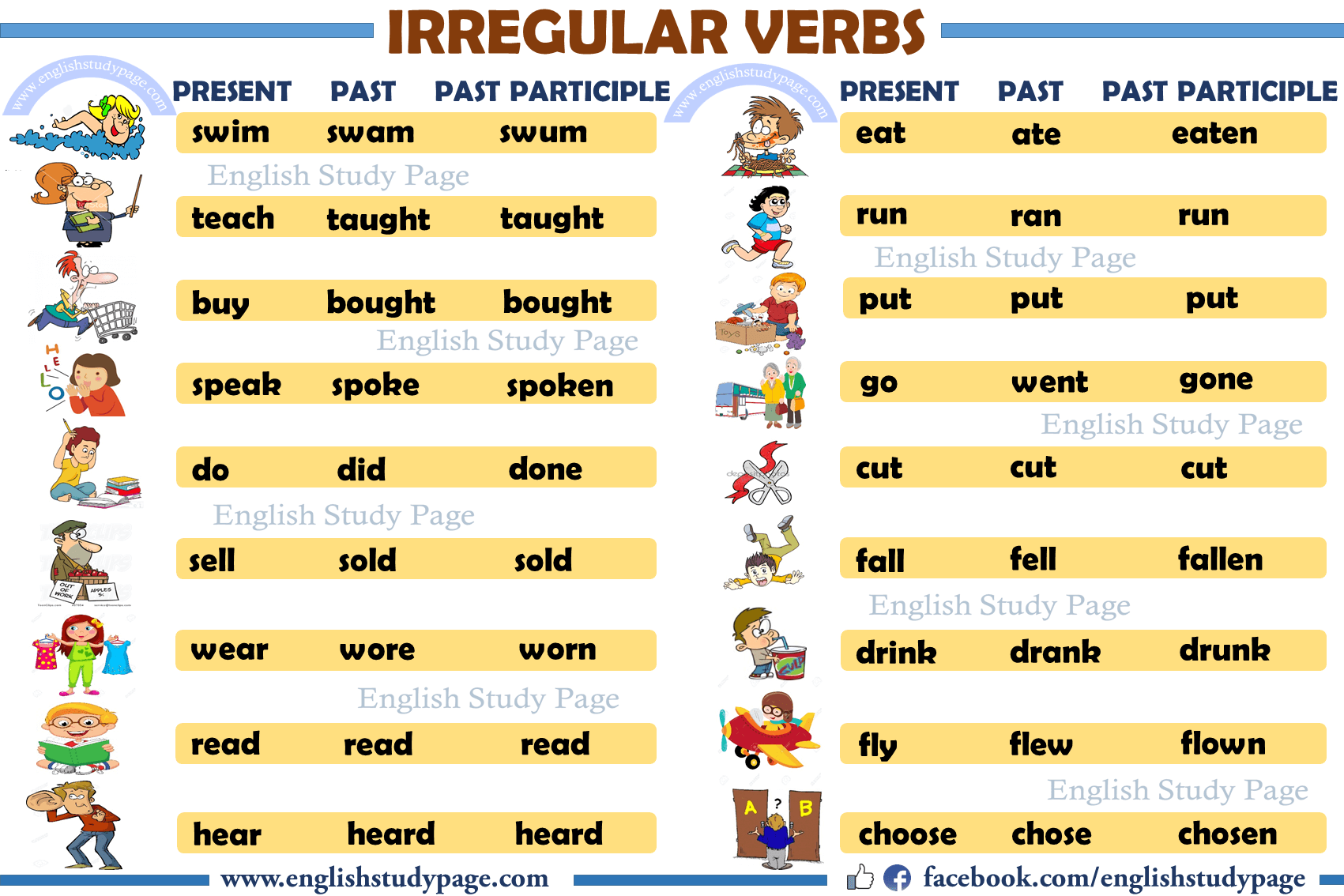
Detailed Irregular Verbs List English Study Page
Conjugation of "To Take" The verb "take" is an irregular verb. (This means that "take" does not form its simple past tense or its past participle by adding "-ed" or "-d" to the base form.) The Five Forms of "To Take" "To Take" in All the Tenses The tables below show how "take" conjugates in the past, present, and future tenses. Past Tenses

100 Verbs in English, 100 Regular Verbs English Vocabs
As such, some students get used to converting verbs following the regular rules and carry it subconsciously when learning irregular verbs. One of the best ways to avoid this mistake is memorizing irregular verbs. You can do this by familiarizing yourself with the top 10 most common irregular verbs first: 1. be. 2. say.

Regular Verbs ESL Flashcards
1. think | jump | become 2. take | see | cook 3. clean |
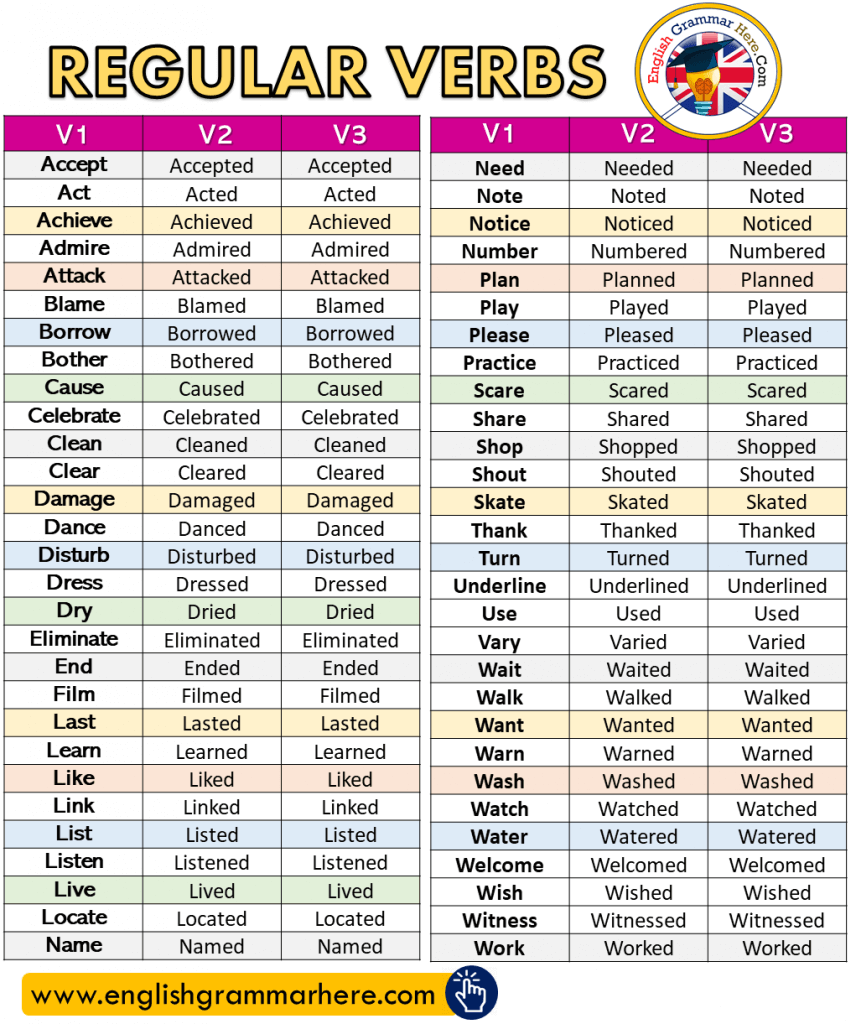
100 example of regular verbs with past tense and past participle
Instructions Transcript The past simple is the most common way of talking about past events or states which have finished. It is often used with past time references (e.g. yesterday, two years ago). Please explain past events or states! A past event could be one thing that happened in the past, or a repeated thing. I stopped at a zebra crossing.
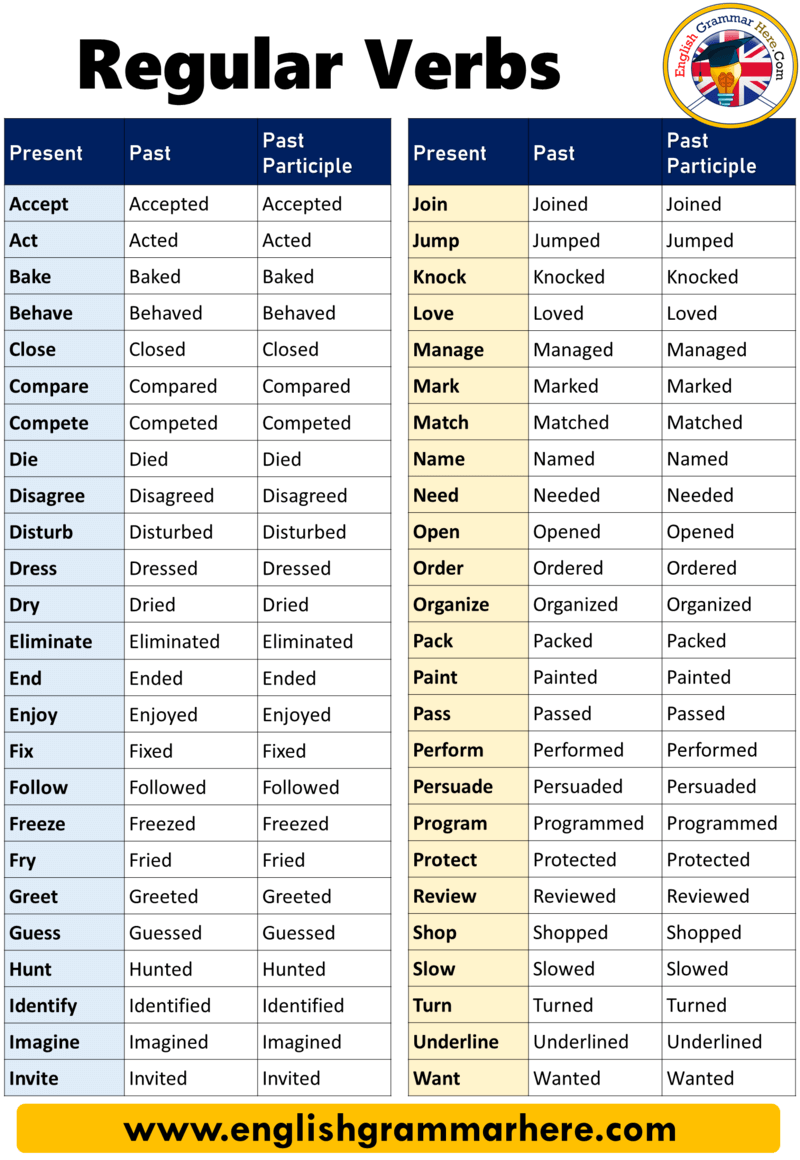
Regular Verbs, Definition and Examples English Grammar Here
The present simple tense, explaining something that is happening now. For example, 'We sing in church'; in the infinitive form, which is easy to remember because the verb is preceded by 'to'. 'We like to sing in church.' Ah, so this is a gerund! Next, we have the 'ing' version of the verb.
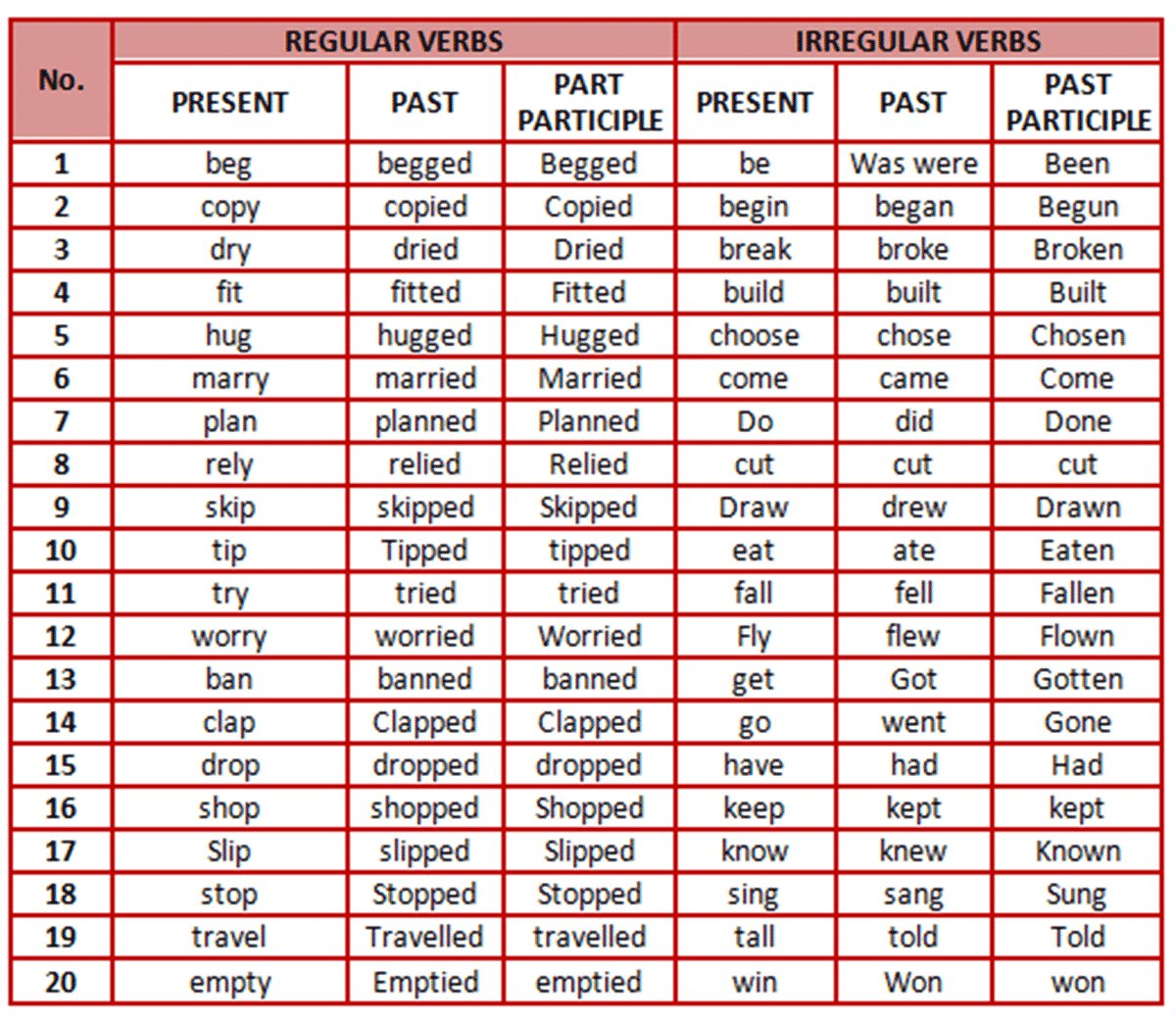
List of Regular and Irregular Verbs (English Verb Forms) ESLBUZZ
Verb forms of ' to take'. . 1. To take is the present tense: I take my dog on a walk every morning and evening. 2. Took is the simple past: We took my mother for a drive in the country. 3. Taken is the past participle: The cat had to be taken to the vet. .

Past Simple 2 Regular Verbs E Lessons Blendspace
Conjugation verb take X English Toolbox: Models British vs. American English Auxiliaries, modals Irregular verbs take carry; draw; pull;. Infinitive to take Preterite took Past participle taken Model : take Auxiliary : have, be Other forms: not take Contractions Advertising Indicative Present I take you take he/she/it takes we take you take

regular verbs list Archives English Grammar Here
Show Instructions Guess the hidden word by choosing one letter at a time. If you guess a letter in the hidden adjective, then all is good. If you guess a letter that is not in the hidden adjective, then the hangman starts to build the gallows. If the gallows are completed, you lose. Good luck! Hide Instructions ? ? ? ? ? Q W E R T Y U I O
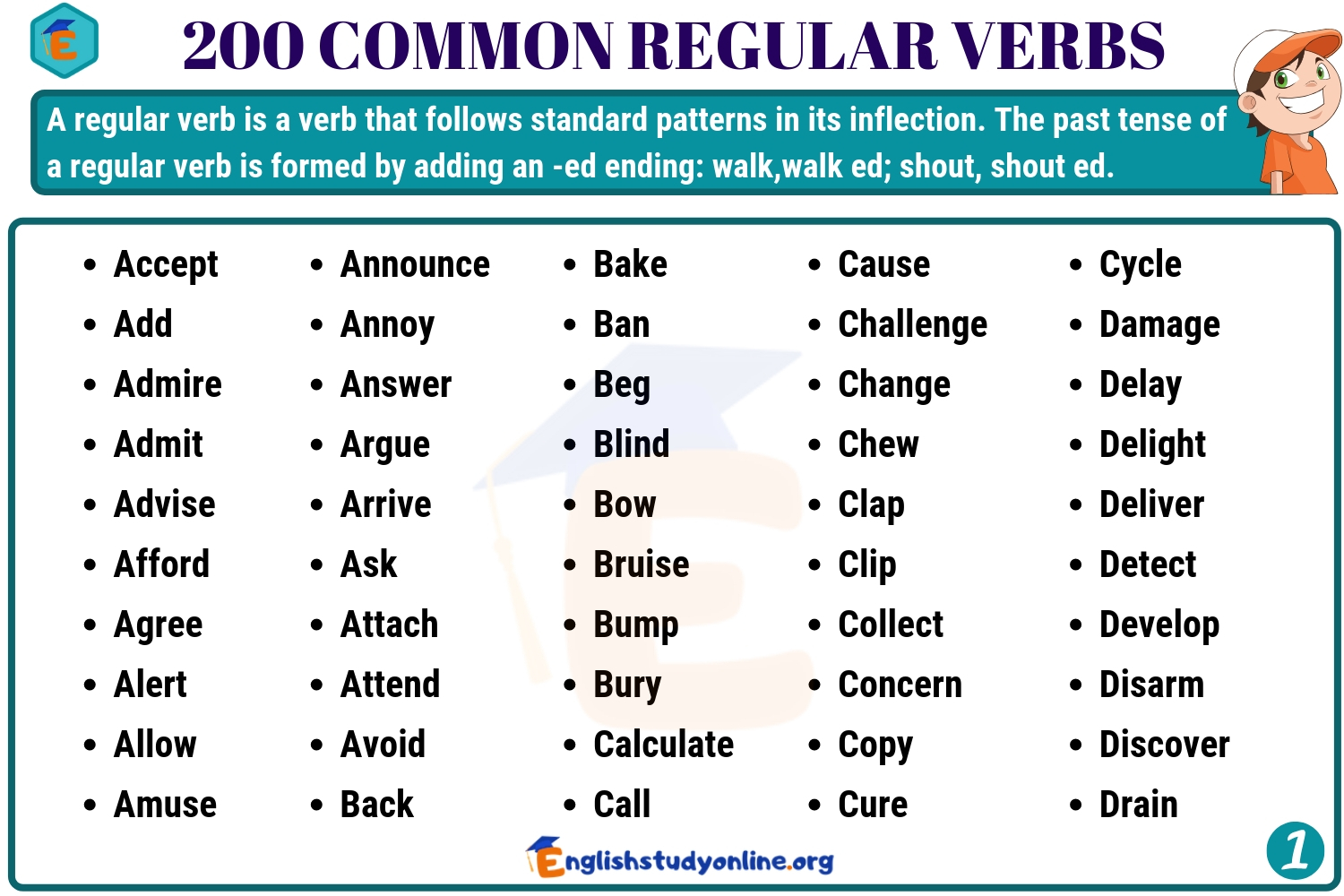
200 Important Regular Verbs Definition and Regular Verbs List
A regular verb is a verb whose simple past and past participle are formed by adding the suffix "-ed" (e.g., "walk" becomes "walked"). In contrast to regular verbs, irregular verbs are verbs whose simple past and past participles are formed in some way other than by adding "-ed" to the infinitive of the verb.
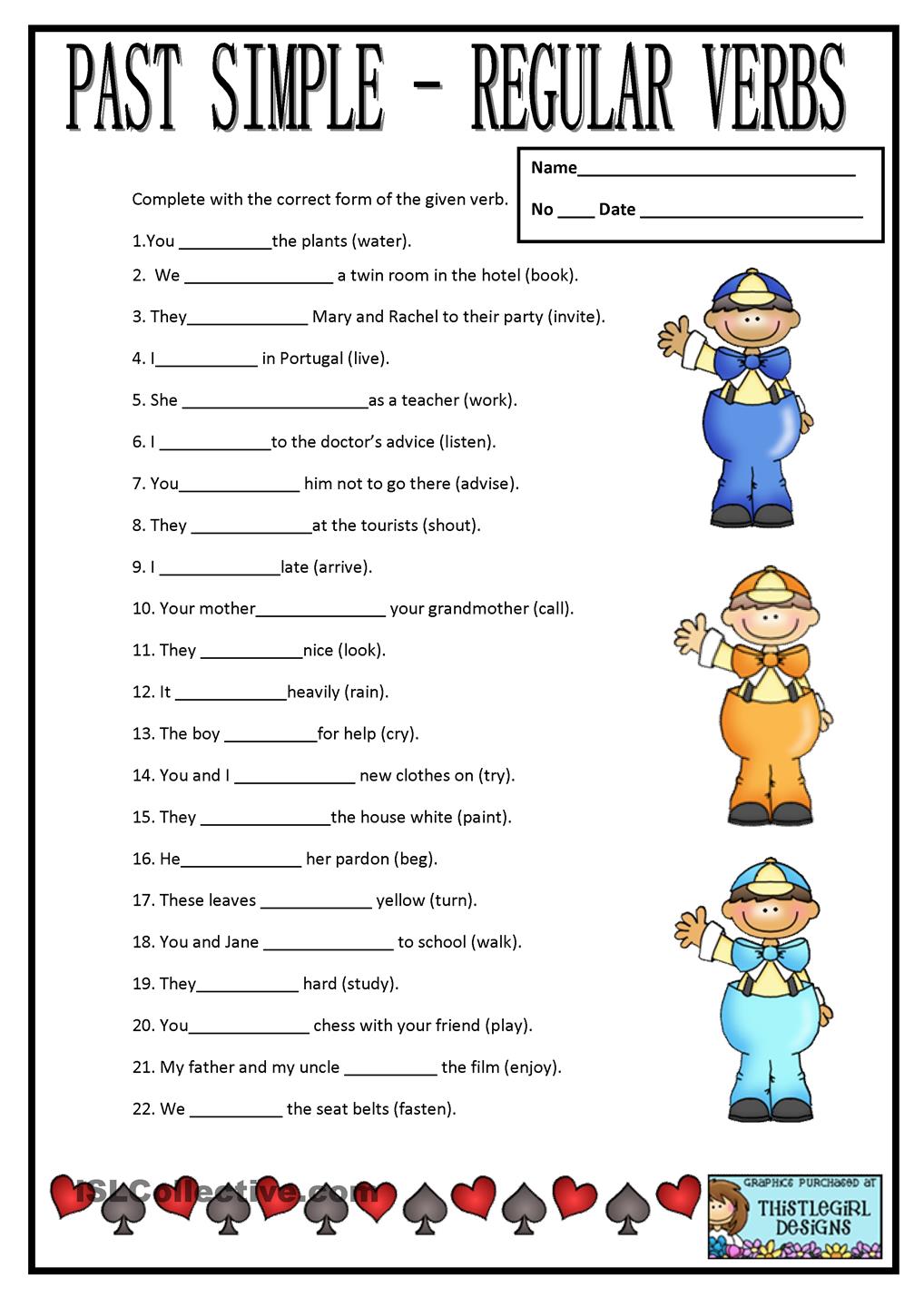
past_simple_regular_verbs_1 Take the penTake the pen
1. To form the past tense of a verb, add -ed to the end of the root form of the verb. For example, jump becomes jumped and talk becomes talked. 2. If the verb ends in -e, just add a -d to the end of the root form. For example, examine becomes examined and dance becomes danced. 3. If the verb ends in -y, we turn the -y into an -i and add -ed.

Regular Verbs List of 300+ Useful Regular Verbs in English • 7ESL
These verbs that are conjugated following a pattern are called regular verbs, which differ from irregular verbs, which take on entirely different spellings in the past tense. For instance, 'run.